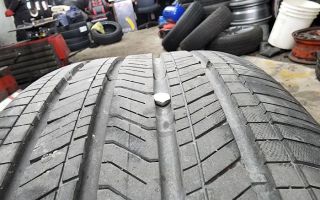Can Flat Tires Be Fixed During the Winter Months?
- Understanding Flat Tires in Winter
- Challenges of Fixing Tires in Cold Weather
- How to Safely Fix a Flat Tire in Winter
- When to Call for Professional Towing Assistance
- Winter Tire Maintenance Tips
Winter months pose unique challenges for vehicle maintenance, and one of the most common problems during this season is flat tires. Cold weather, ice, snow, and the increased likelihood of road debris can cause tires to go flat more frequently. But can flat tires be fixed during the winter months, or should you wait until the warmer months to address the issue? In this article, we will dive deep into the process of fixing a flat tire in winter, the challenges involved, and some tips for ensuring that you can handle this situation safely and effectively.
Fixing a flat tire during the winter can be much more complicated than in warmer weather, but it is certainly possible with the right preparation. The biggest challenge is the cold temperatures, which can make it difficult to work with tools and tire materials. The low temperatures can cause rubber to become stiff and less pliable, making it harder to properly seal a punctured tire. Additionally, frozen or snow-covered ground may make it difficult to access your vehicle or get the tire changed efficiently.
One key aspect to keep in mind is that the presence of snow or ice can affect the tools needed for the job. For example, tire jacks may sink into snow or ice, and the air compressor needed to inflate a tire may not function well in freezing conditions. These challenges often cause people to seek professional help, especially when they don’t have the proper equipment for winter conditions.
If you find yourself with a flat tire during the winter months, here are some tips to help you fix it safely and effectively:
- Find a Safe Spot: Before attempting to change the flat tire, it’s crucial to ensure that you are in a safe location. Snowy or icy conditions on the side of the road can be dangerous, so try to park your vehicle away from traffic and on stable ground.
- Check the Weather and Conditions: If it’s extremely cold or snowing heavily, you might want to reconsider trying to fix the tire yourself. If road conditions are hazardous, it may be safer to wait for professional help.
- Prepare the Right Tools: Ensure that you have the right equipment with you. This includes a tire jack, lug wrench, spare tire, and a functioning air compressor or tire inflator. In winter, you may also need additional tools like snow brushes and ice scrapers to clear away any snow or ice from the tire and wheel well.
- Work Quickly and Efficiently: In cold weather, you’ll want to move quickly to minimize your exposure to the elements. Try to avoid prolonged exposure to freezing temperatures, as it can lead to frostbite or make it more difficult to work with your tools.
Sometimes, despite your best efforts, a flat tire simply cannot be fixed in the harsh winter conditions. In these cases, it is best to call a professional towing service. Many towing services offer 24/7 roadside assistance, including tire changes. If you’re unable to fix the flat on your own, a towing service can transport your vehicle to a safer location, where the tire can be repaired or replaced in a controlled environment.
A common story shared by many drivers is how they had to rely on roadside assistance when dealing with flat tires in winter storms. A customer might have experienced a tire blowout on a remote highway in the middle of a snowstorm. Without the proper tools or conditions to safely fix the tire, they had no choice but to call for professional help. The towing company arrived quickly, even in the snow, and helped the driver change the tire and get back on the road.
While you can fix a flat tire during the winter months, it’s also important to take preventative steps to reduce the likelihood of a flat in the first place. Here are some winter tire maintenance tips:
- Inspect Tires Regularly: Before the winter months, make sure your tires are properly inflated and free of damage. Check for any cuts or punctures that could turn into flat tires during snowstorms or icy conditions.
- Use Winter Tires: Invest in high-quality winter tires that are designed to handle cold temperatures and icy roads. Winter tires offer better traction and help prevent tire damage.
- Maintain Proper Tire Pressure: Cold weather can cause tire pressure to drop. Regularly check tire pressure and make sure all tires are properly inflated.
- Check the Tread Depth: Tires with worn tread are more likely to get damaged in snow or ice. Make sure your tires have sufficient tread depth before the winter season begins.
If you need help with towing assistance or tire repair services, consider reaching out to reliable towing companies. Many offer special packages for roadside assistance during the winter, ensuring that you stay safe on the road no matter the conditions.
For more information on towing services or to book assistance for a flat tire during winter, contact us at [Towing Service] for prompt and professional support!























